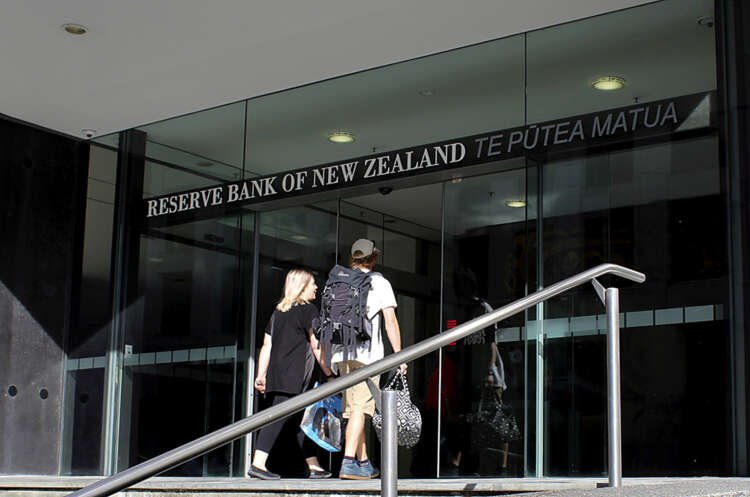New Zealand holds rates at record low as fresh COVID-19 outbreak stokes uncertainty
Published by maria gbaf
Posted on August 18, 2021
3 min readLast updated: January 21, 2026

Published by maria gbaf
Posted on August 18, 2021
3 min readLast updated: January 21, 2026

By Praveen Menon
WELLINGTON (Reuters) – New Zealand’s central bank on Wednesday left interest rates unchanged at a record low of 0.25%, as policymakers quickly shifted gears after the country was put into a snap lockdown following the detection of new coronavirus cases.
The economy is running red-hot and a majority of economists polled by Reuters last week had expected the Reserve Bank of New Zealand (RBNZ) to raise the official cash rate (OCR) by 25 basis points from a record low to 0.50%.
Some said Governor Adrian Orr may even deliver a 50 basis point rate hike https://www.reuters.com/article/newzealand-economy-rates/new-zealands-snap-covid-lockdown-casts-doubt-over-expected-rate-hike-idUSL4N2PO0KO.
However, New Zealand’s first local COVID-19 infection in six months, reported on Tuesday, and a snap lockdown ordered for the entire nation hosed down those expectations and forced policymakers to confront the potential risks of moving now.
“Today’s decision was made in the context of the government’s imposition of Level 4 COVID restrictions on activity across New Zealand,” RBNZ’s monetary policy committee said in a statement.
The New Zealand dollar dropped 0.3% to $0.6917 after the announcement.
RBNZ projections showed the cash rate would reach 0.50% by the end of the year, 1.5% by mid next year and over 2% by end of 2023.
A hike on Wednesday would have made New Zealand the first both in the Asia-Pacific and the G10 currency block to raise rates in the pandemic era.
While most developed economies are still holding off hiking, New Zealand’s successful COVID-19 elimination strategy has fired a hot economic recovery and stoked inflation.
However, New Zealand’s vaccination rate is low, leaving the nation of 5 million vulnerable – a fact underscored by the latest detection of the highly infectious Delta variant https://www.reuters.com/world/asia-pacific/new-zealand-reports-4-more-covid-19-cases-delta-variant-spreads-2021-08-17which has hobbled neighbouring Australia.
(Reporting by Praveen Menon; Editing by Shri Navaratnam)
By Praveen Menon
WELLINGTON (Reuters) – New Zealand’s central bank on Wednesday left interest rates unchanged at a record low of 0.25%, as policymakers quickly shifted gears after the country was put into a snap lockdown following the detection of new coronavirus cases.
The economy is running red-hot and a majority of economists polled by Reuters last week had expected the Reserve Bank of New Zealand (RBNZ) to raise the official cash rate (OCR) by 25 basis points from a record low to 0.50%.
Some said Governor Adrian Orr may even deliver a 50 basis point rate hike https://www.reuters.com/article/newzealand-economy-rates/new-zealands-snap-covid-lockdown-casts-doubt-over-expected-rate-hike-idUSL4N2PO0KO.
However, New Zealand’s first local COVID-19 infection in six months, reported on Tuesday, and a snap lockdown ordered for the entire nation hosed down those expectations and forced policymakers to confront the potential risks of moving now.
“Today’s decision was made in the context of the government’s imposition of Level 4 COVID restrictions on activity across New Zealand,” RBNZ’s monetary policy committee said in a statement.
The New Zealand dollar dropped 0.3% to $0.6917 after the announcement.
RBNZ projections showed the cash rate would reach 0.50% by the end of the year, 1.5% by mid next year and over 2% by end of 2023.
A hike on Wednesday would have made New Zealand the first both in the Asia-Pacific and the G10 currency block to raise rates in the pandemic era.
While most developed economies are still holding off hiking, New Zealand’s successful COVID-19 elimination strategy has fired a hot economic recovery and stoked inflation.
However, New Zealand’s vaccination rate is low, leaving the nation of 5 million vulnerable – a fact underscored by the latest detection of the highly infectious Delta variant https://www.reuters.com/world/asia-pacific/new-zealand-reports-4-more-covid-19-cases-delta-variant-spreads-2021-08-17which has hobbled neighbouring Australia.
(Reporting by Praveen Menon; Editing by Shri Navaratnam)
Explore more articles in the Banking category











